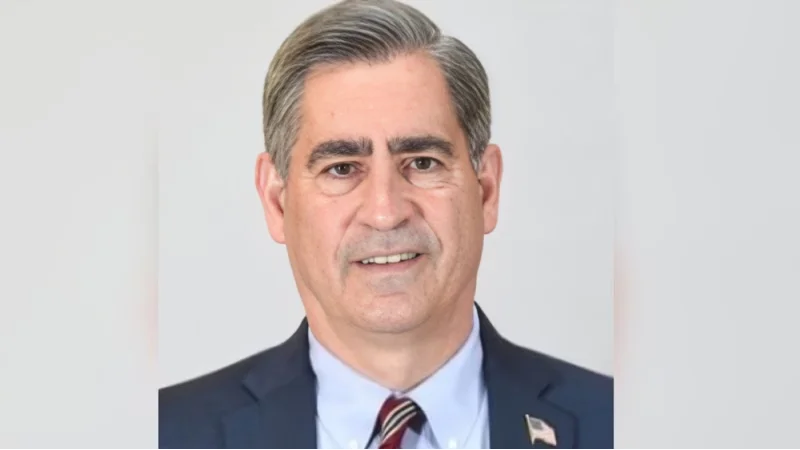Earlier today, a federal jury in Brooklyn convicted Abdullah At Taqi of conspiring and attempting to provide material support to the Islamic State of Iraq and al-Sham (ISIS), as well as conspiring to launder money. His co-defendant, Mohammad David Hashimi, had previously pleaded guilty to all charges on October 6, 2025. The two men face up to 60 years in prison at sentencing.
According to the U.S. Attorney’s Office for the Eastern District of New York, At Taqi and Hashimi sent thousands of dollars in cryptocurrency and wire transfers to a self-identified ISIS member. The case was announced by Joseph Nocella, Jr., U.S. Attorney for the Eastern District of New York; Todd Blanche, United States Deputy Attorney General; John A. Eisenberg, Assistant Attorney General for National Security; Christopher G. Raia, Assistant Director in Charge at the FBI’s New York Field Office; and Jessica S. Tisch, Commissioner of the New York City Police Department.
“The defendants used Bitcoin, PayPal and GoFundMe to fund ISIS’s deadly mission,” stated United States Attorney Nocella. “ISIS relies on supporters, like the defendants, to sponsor its terrorist aims, which is why our Office and our law enforcement partners are working tirelessly to disrupt that pipeline and prosecute those who provide material support to terrorist organizations and their evildoers.”
Nocella expressed gratitude for the FBI’s New York Joint Terrorism Task Force's work on the case.
“An exceptional team uncovered the defendants’ use of electronic currency to bankroll an abhorrent organization that harbors deep-seated animosity toward America,” said Deputy Attorney General Blanche. “Their intent was to procure weapons for terrorism and now their actions will result in incarceration. Justice has been served.”
Assistant Attorney General Eisenberg added: “Today, a federal jury convicted Abdullah At Taqi for conspiring to fund ISIS, a terrorist organization that has unleashed terror and unimaginable brutality across the globe. Taqi conspired to support the group and its atrocities by funneling cryptocurrency to ISIS fighters, hoping they would establish a stronghold in the Middle East from which the group could destabilize the entire region. This conviction reflects the Department’s commitment to holding accountable those who knowingly finance terrorism.”
FBI Assistant Director Raia commented: “Abdullah At Taqi and Mohammed Hashimi knowingly donated thousands of dollars to an ISIS member through various cryptocurrency exchanges, wire transfers, and purported humanitarian fundraisers. The defendants’ actions potentially facilitated the purchase of explosives and ammunition by a designated terrorist organization. May today’s conviction emphasize the FBI’s stout determination to cease all funding of terrorists to ensure their malevolent ideologies are never brought to fruition.”
NYPD Commissioner Tisch stated: “The NYPD will stop at nothing to protect New Yorkers from the dangers of ISIS and terrorists who seek to harm our country. These defendants used a variety of online platforms in an attempt to covertly send thousands of dollars to ISIS members to purchase weapons. Today’s conviction demonstrates the NYPD’s expertise and commitment to rooting out terrorism and the importance of our partnership with the U.S Attorney’s Office and the FBI to stop these dangerous individuals.”
Evidence presented at trial showed that At Taqi made 15 separate Bitcoin transactions over nearly a year period sending funds directly or through intermediaries such as Osama Obeida (also known as Osama Abu Obayda), identified as an ISIS member by both At Taqi himself in encrypted communications with an undercover source (CHS-1) and Obeida's own admissions.
Obeida confirmed his connection with At Taqi over two years during conversations with CHS-1. He also provided photographic evidence featuring an ISIS flag and weapons alongside CHS-1's online screenname as proof that donations were being used for purchasing weapons for ISIS fighters.
Other digital messages revealed Obeida instructing At Taqi on security measures such as deleting messages or changing IP addresses.
Hashimi participated in encrypted group chats among ISIS supporters where fundraising links were shared under humanitarian pretenses but intended for supporting armed fighters (“mujahideen”). Both Bitcoin addresses and PayPal accounts controlled by Obeida were circulated within these groups; Hashimi warned participants about law enforcement detection risks.
The investigation found that At Taqi, Hashimi, Seema Rahman (another co-defendant), along with Khalilullah Yousuf contributed more than $24,000 collectively via Bitcoin alone—Yousuf providing most ($20,347), while At Taqi contributed about $2,769; Rahman added $927.
In addition they sent over $1,000 through PayPal accounts linked with Obeida—with Rahman contributing approximately $550; At Taqi about $695; Hashimi $55—and utilized GoFundMe campaigns purporting charitable causes but routing funds back into networks connected with Obeida via Western Union wires amounting up roughly $10,024 from Rahman alone.
Rahman pleaded guilty earlier this year (January 2025) while Yousuf was prosecuted separately in Canada.
The prosecution was led by Assistant United States Attorneys Ellen H. Sise, Nina C. Gupta, Gilbert M. Rein from EDNY's National Security & Cybercrime Section alongside DOJ Counterterrorism Section Trial Attorney Alicia Cook.





